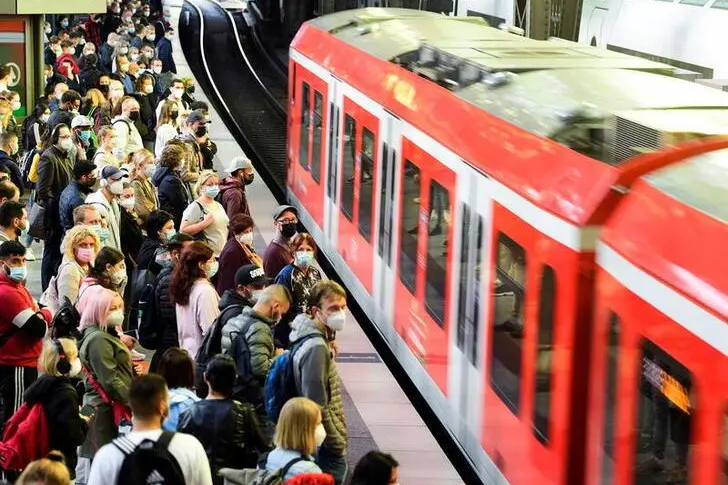PHOTO
BERLIN - A strike by train drivers paralysed passenger and freight traffic across Germany on Wednesday as the union demanded a better wage offer from rail operator Deutsche Bahn.
The strike coincides with increased demand for rail services following the easing of coronavirus curbs during the peak school holiday season. Stranded travellers stood waiting for their delayed trains at stations across Germany.
Deutsche Bahn spokesperson Achim Stauss said the company was trying to keep one in four normally scheduled long-distance trains operational and to have at least a trip every two hours between large cities.
"We are doing our best to get people to their destination today," Stauss said, urging travellers to postpone unnecessary trips.
Germany's GDL union will decide next week whether and when to continue its strike at Deutsche Bahn after wage talks with the state-owned company failed, its chief Claus Weselsky told ZDF broadcaster on Wednesday.
Weselsky said the first hours of the strike, which started at 0200 local time (0000 GMT) on Wednesday, were successful. The strike brought around 700 trains to a standstill.
"I have to say very clearly that our colleagues went on strike in a very disciplined manner," Weselsky told Reuters, adding that the union will only return to the negotiation table if Deutsche Bahn makes an improved offer.
GDL is demanding wage increases of around 3.2% and a one-time coronavirus allowance of 600 euros ($702.60).
Economists and lobby groups say the strike at the cargo business could exacerbate the already-tight supply chain bottlenecks in Europe's biggest economy.
Germany's VDA car association said the strike will create uncertainties and will harm the logistics industry, which is struggling to recover from the coronavirus crisis.
"If the strikes last longer, considerable costs can arise for companies because interrupted supply chains quickly lead to production stoppages," VDA president Hildegard Mueller told Reuters.
The last railway strike was called by the EVG workers union in December 2018 and lasted only four hours.
($1 = 0.8540 euros)
(Reporting by Christian Ruettger, Markus Wacket and Jan Schwartz Writing by Riham Alkousaa Editing by Kirsti Knolle and Barbara Lewis) ((Riham.Alkousaa@thomsonreuters.com;))





















